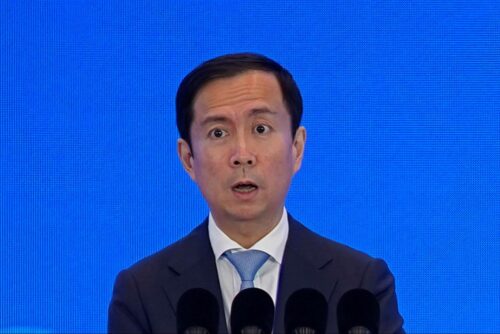China steps up antitrust campaign with new draft rules targeting internet companies
China’s State Administration for Market Regulation published a set of draft regulations on internet companies that was remarkable for its detailed list of prohibited behaviors.

Following through on a promise of more regulation in areas such as antitrust, data security, and consumer rights, China’s State Administration for Market Regulation (SAMR) published today a set of draft regulations (in Chinese) on internet companies.
The regulations spell out a long list of prohibited behaviors that SAMR intends to target, including:
- Using logos or designs for products in ways that could “cause people to mistake them for other people’s goods or have a specific connection with others.”
- False or misleading publicity materials, including false rankings or user traffic data.
- False or even partially misleading information about competitors.
- Any kind of “traffic hijacking activities such as inserting links or forcing target jump.” The Wall Street Journal notes that previously, “a Tencent platform such as its social-messaging app WeChat generally wouldn’t allow links to rival Alibaba’s platforms — for example Alipay for payments or Taobao for shopping — and vice versa,” and the companies were already considering changing these “walled garden” practices.
- Exclusivity contracts and practices for which Alibaba was already given a multibillion-dollar fine and Meituan is currently under investigation.
- Using “data, algorithms, and other technical means” to influence the choices of consumers.
The new rules are subject to change after a month of public consultation. But the draft is already “extremely significant,” technology analyst Kendra Schaefer told the Financial Times, because of its unusual level of specificity in listing behaviors that regulators planned to target. Angela Zhang, an expert in Chinese antitrust law, told the WSJ that the rules would “streamline the procedure to target such issues by requiring a lower burden of proof compared with the current framework.”
Where is the policy bottom?
In response to the latest tech sector regulatory move, Hong Kong–listed shares of ecommerce and internet giants “JD.com, Alibaba, and Tencent closed down 5.2%, 4.8% and 4.1% respectively,” per the FT. Meanwhile, internet video leaders Kuaishou and Bilibili, along with search giant Baidu, hit record lows, the WSJ says.
At the same time, a development at ByteDance, the world’s largest private technology company, is raising “questions over how much influence Beijing is planning to wield” in China’s tech sector, per Reuters: An entity controlled by China’s central government quietly took a 1% stake and one of three board seats in the company’s key Chinese entity in April, as reported by The Information.
- The government has a similar 1% stake in Weibo, per Reuters.
- In 2017, the government appeared to push all major Chinese tech companies to grant a similar stake.
- The 1% stake may be symbolic, but it is of a piece with the government’s approach to Big Tech right now: Only companies that cooperate with the state will be allowed to thrive.
- The news also “gives new context to Zhang Yiming’s decision [announced in May] to step down from his position as ByteDance’s CEO,” Michael Norris at consultancy AgencyChina told Bloomberg.
“We’re waiting for a policy bottom,” Wendy Chen, the sector head of Asia at Kingdon Capital Management, told The China Project. But even if a bottom is reached, the internet industry is “maybe not a core growth driver for China” for the future, Chen said, pointing to the limited number of additional users in the country given 70% internet penetration to date.
The “biggest names will maintain dominant positions in the Chinese economy,” said Ted Wang, the CIO of Puissance Capital. However, even Tencent and Alibaba may not have hit bottom yet, he warned, as they “have both benefited from low taxes on enterprise software” and this could be an upcoming area of regulation.
China news, weekly.
Sign up for The China Project’s weekly newsletter, our free roundup of the most important China stories.






